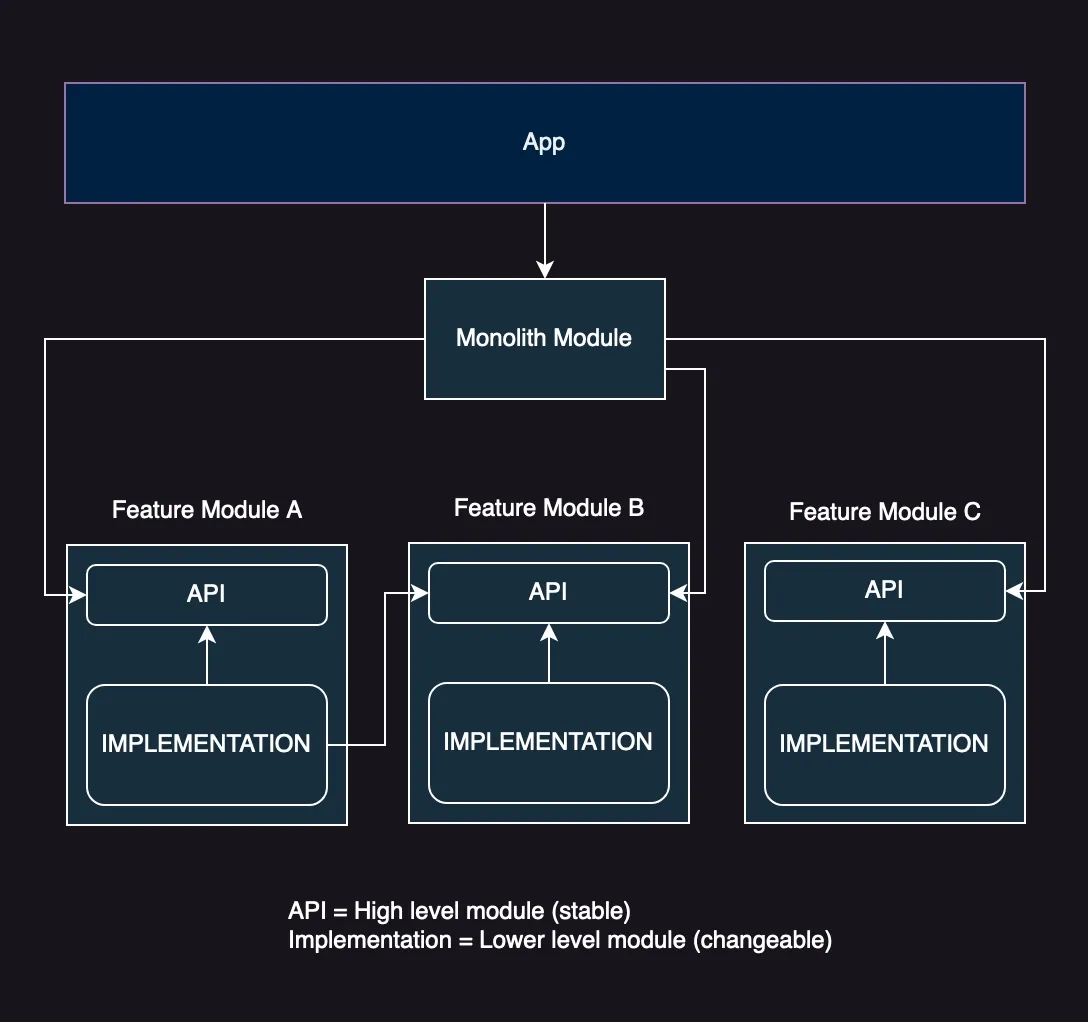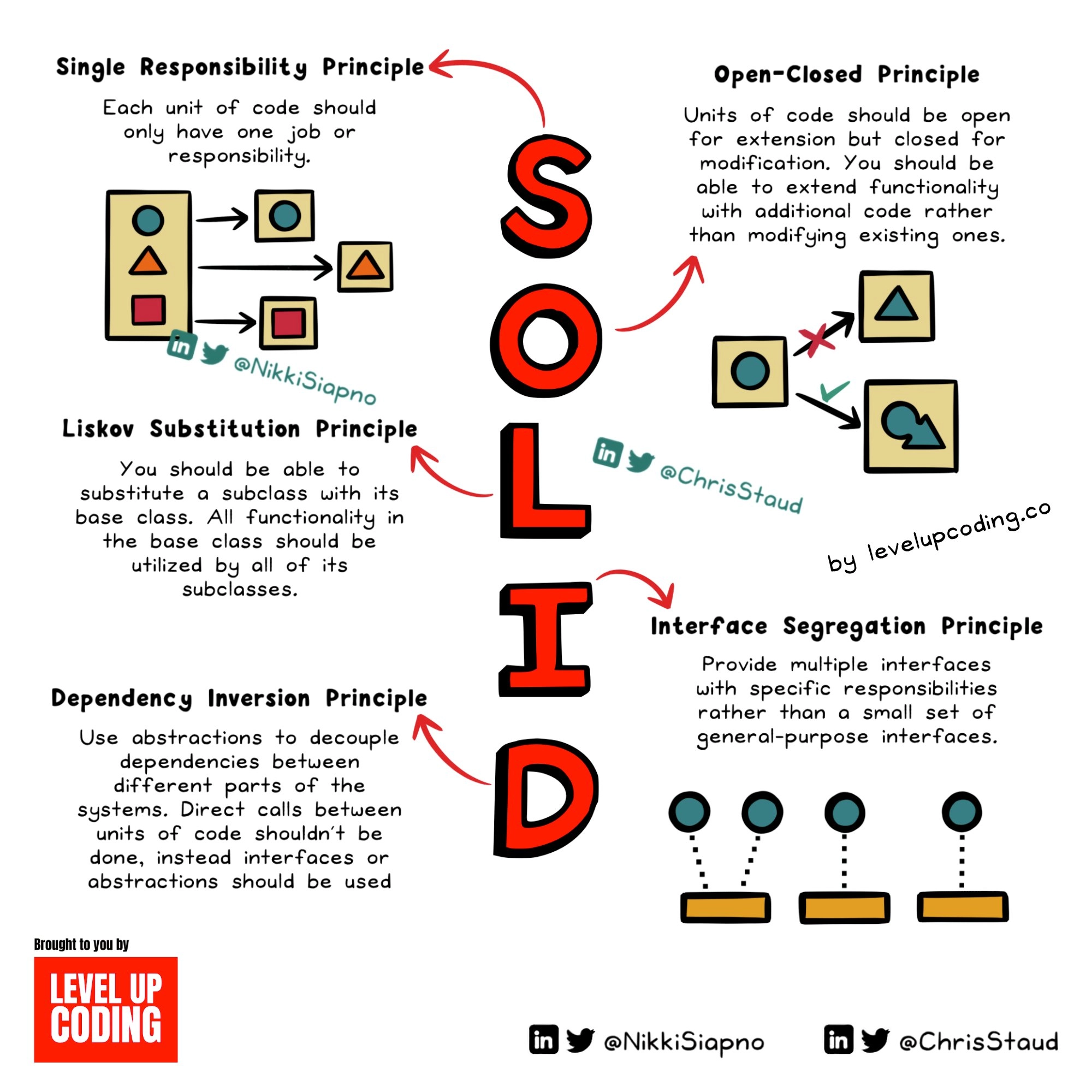A "Spotify-ish" app to showcase massively scalable architecture for Android.
- This scheme should keep build times hovering around 2 minutes even as we scale to 1,000's of modules...
- Set which sample app you want to build in
:app/build.gradle - Now "Focus" it by running:
./gradlew :app:focus --no-configure-on-demand --no-configuration-cache
- (Or for windows
users)
./gradlew :app:focus --project-cache-dir=../cache --no-watch-fs --no-configuration-cache --no-configure-on-demand - Sync the project
- All unnecessary modules have now been unloaded and you can iterate at maximum speed!
:feature:detail:appis an excellent example of the power of this architecture.detailis a
leaf node to the main workflow and yet we can build it in isolation and launch directly to it.- How much your sample apps pull in is up to you. e.g.-
:feature:detail:appuses the ACTUAL Spotify API, but:feature:home:appjust stubs the response. Is the faster build time worth not using real data? - You can see how many modules get unloaded when we "focus" on the Search feature:
| Before and After "Focusing" |
|---|
 |
 |
affectedModuleDetector is an excellent way to cut down on CI times and expenses so that an app
can scale massively.
affectedModuleDetector looks at the last commit of your branch to determine what modules are "
affected".
Here are 3 useful examples of running detekt, unit tests, and android tests:
./gradlew runAffectedDetekt -Paffected_module_detector.enable --no-configure-on-demand --no-configuration-cache
./gradlew runAffectedUnitTests -Paffected_module_detector.enable --no-configure-on-demand --no-configuration-cache
./gradlew runAffectedAndroidTests -Paffected_module_detector.enable --no-configure-on-demand --no-configuration-cache
Modularizing by feature using the "public/impl" (aka api/impl aka public/internal) scheme was first described by Ralf Wondratschek of Square in a talk titled "Android at Scale": https://speakerdeck.com/vrallev/android-at-scale-at-square
This allows us to unload any modules that we are not currently working on.
:feature:*:public - Just a Screen key data class.
:feature:*:internal - Contract/Presenter/View/ui.
:feature:*:app - Hilt module to "provide" a start screen or any other unsatisfied dependencies.
:library:*:public - interfaces for UseCases and data models that we have no choice but to
expose.
:library:*:internal - implementations for UseCases.
:*:*:shared-test - Shared stuff for test and androidTest to both depend on.
Basically anytime we want to jump screens/workflows, we should consider making it a new feature module and any library modules needed to support it.
Circuit was developed by Slack to implement the "Broadway" architecture from CashApp.
A "Circuit" is comprised of a "Presenter" and a "View". A :feature:foo:internal module
contributes a FooPresenter and a FooView that are tied to a specific "Screen Key"
e.g.- FooScreen from :feature:foo:public
When the app tries to launch FooScreen it will check if any Presenter/View combo was contributed
for that key. If that combo wasn't included as part of this launch, then it will display a toast
that it was not found.
This allows us to fail painlessly and only load the chunks of the app that we want to navigate
across.
Circuit leverages Unidirectional Data Flow (UDF) and is highly testable. We test each half of the
Circuit in isolation. The "Presenter" is tested in UnitTests and the "View" is tested in
instrumented tests. (See HomePresenterTest and HomeViewTest)
- Convention Plugins
- Multi-module
- Sample apps with the "Focus" gradle plugin
- "Configure on Demand"
- "Configuration Cache"
- No KAPT. All KSP. KSP2 can be turned on soon. google/ksp#1956
- Dependencies sorting in all modules except
:app - Detekt
- Lint with K2
- "Isolated Projects" can be turned on soon. google/ksp#1752
GraphAssert enforces our 4 sacred laws of modularization and will help as we scale to 1,000's of modules.
Rule 1: Feature modules cannot depend on other feature modules
Exceptions:
- :feature:foo:internal -> feature:bar:public
- :feature:foo:app -> :feature:foo:internal
Rule 2: Library modules cannot depend on feature modules
Exceptions:
- :library:bottom-navigation:public -> :feature:*
Rule 3: Public library modules cannot depend on internal library modules
Rule 4: :feature:*:app modules are the only modules allowed to depend on :internal modules.
You can check that the project is compliant either locally or on CI by running:
./gradlew assertModuleGraph
You can also generate a module dependency graph by running:
./gradlew generateModulesGraphvizText --no-configure-on-demand
Generate prettier module dependency graphs with:
./gradlew createModuleGraph
As we scale to 1,000's of modules we can help keep our dependencies tidy by using:
./gradlew sortDependencies
- Circuit
- Compose
- Hilt/Dagger
- Moshi
- Retrofit
- K2
- Paging3
- Material3
- Accompanist
- Robolectric
- Now in Android: https://github.com/android/nowinandroid
- CatchUp: https://github.com/ZacSweers/CatchUp
- TiVi: https://github.com/chrisbanes/tivi
- Circuit: https://github.com/slackhq/circuit
- Make :public modules be Kotlin only. (No Android)
- Flow tests?
- Snapshot tests?
- Dynamic Feature Modules?
- Rake dependencies?
- Single Activity benefits?
- Benchmarking


